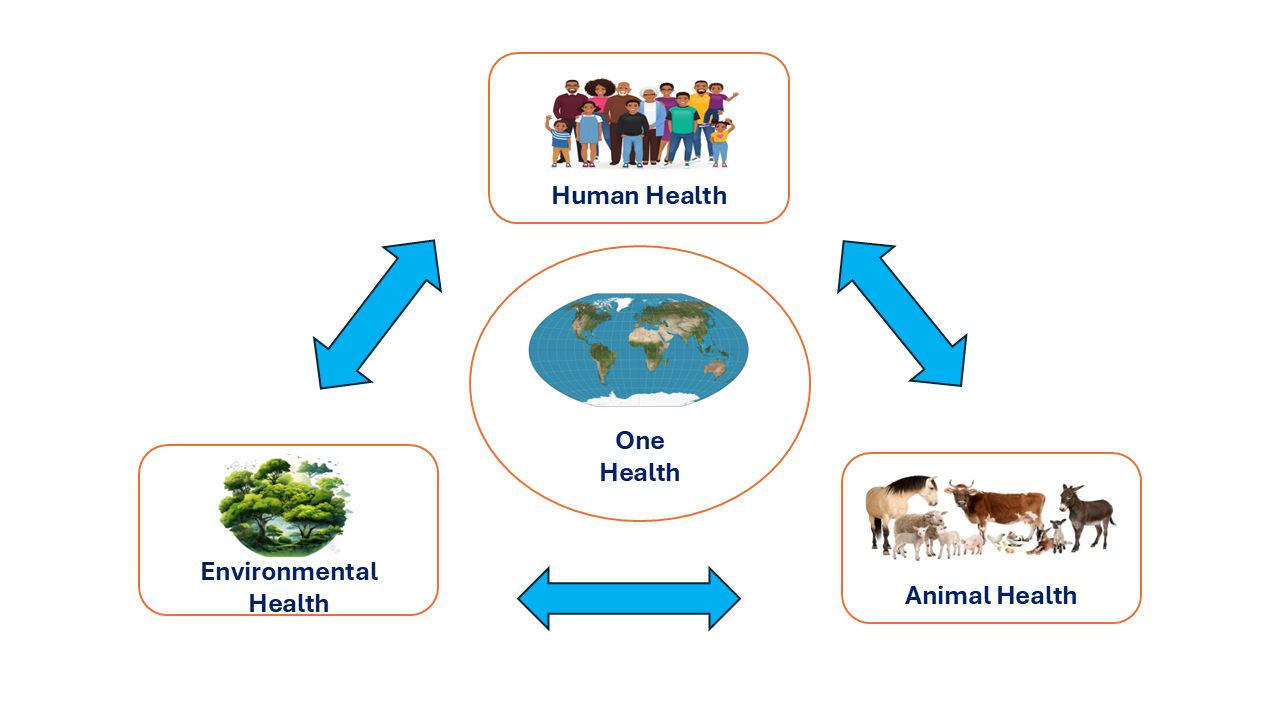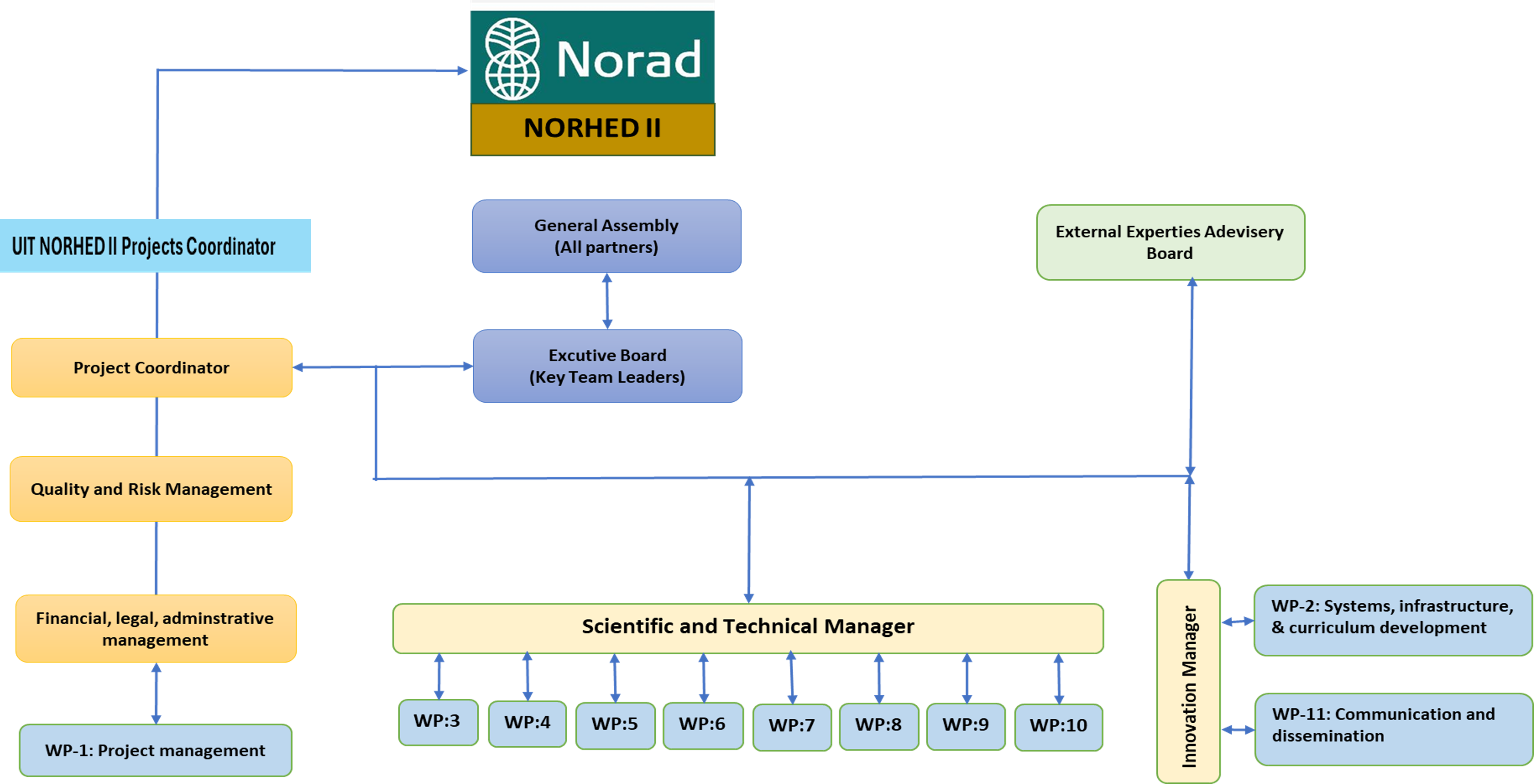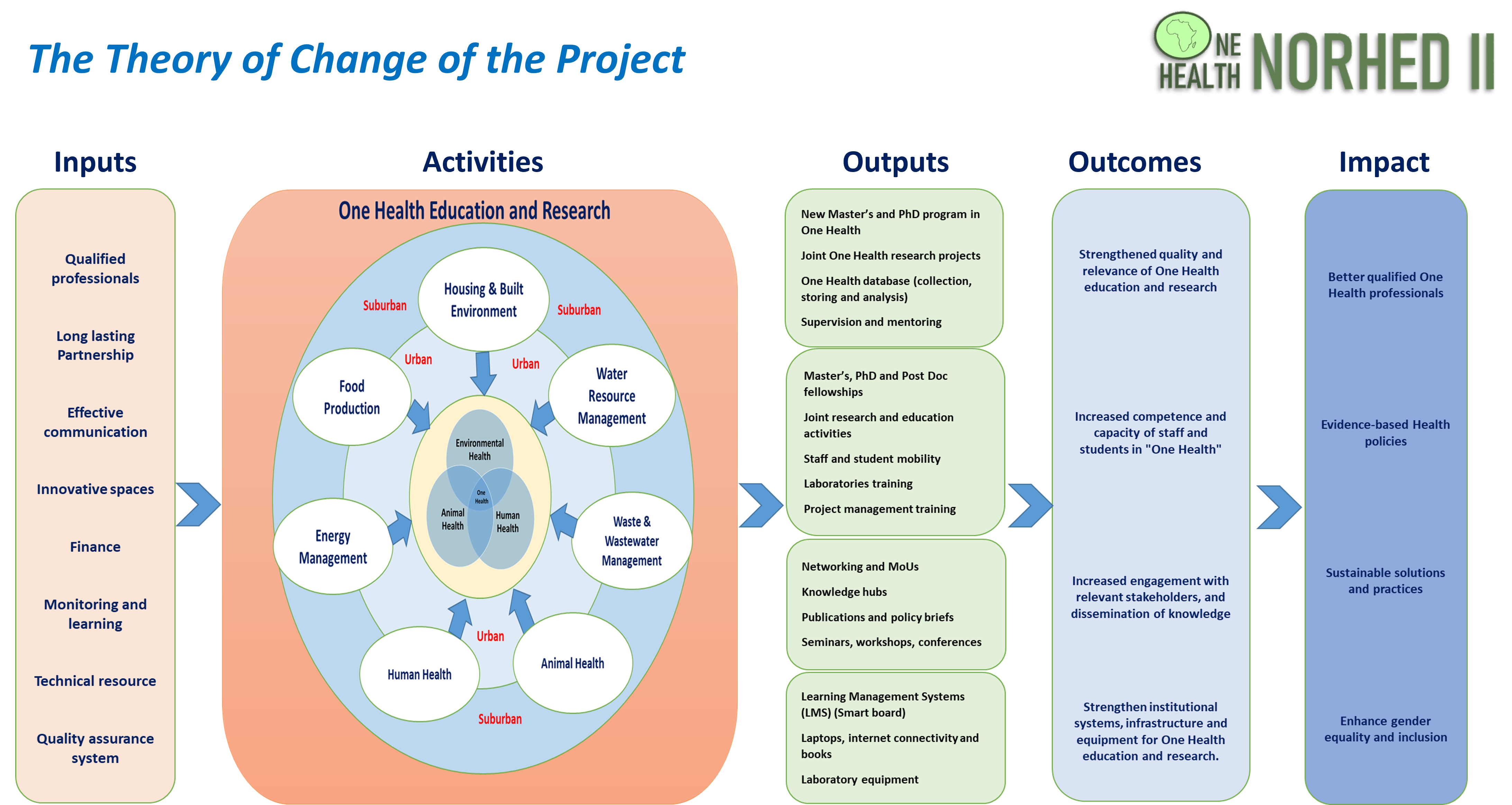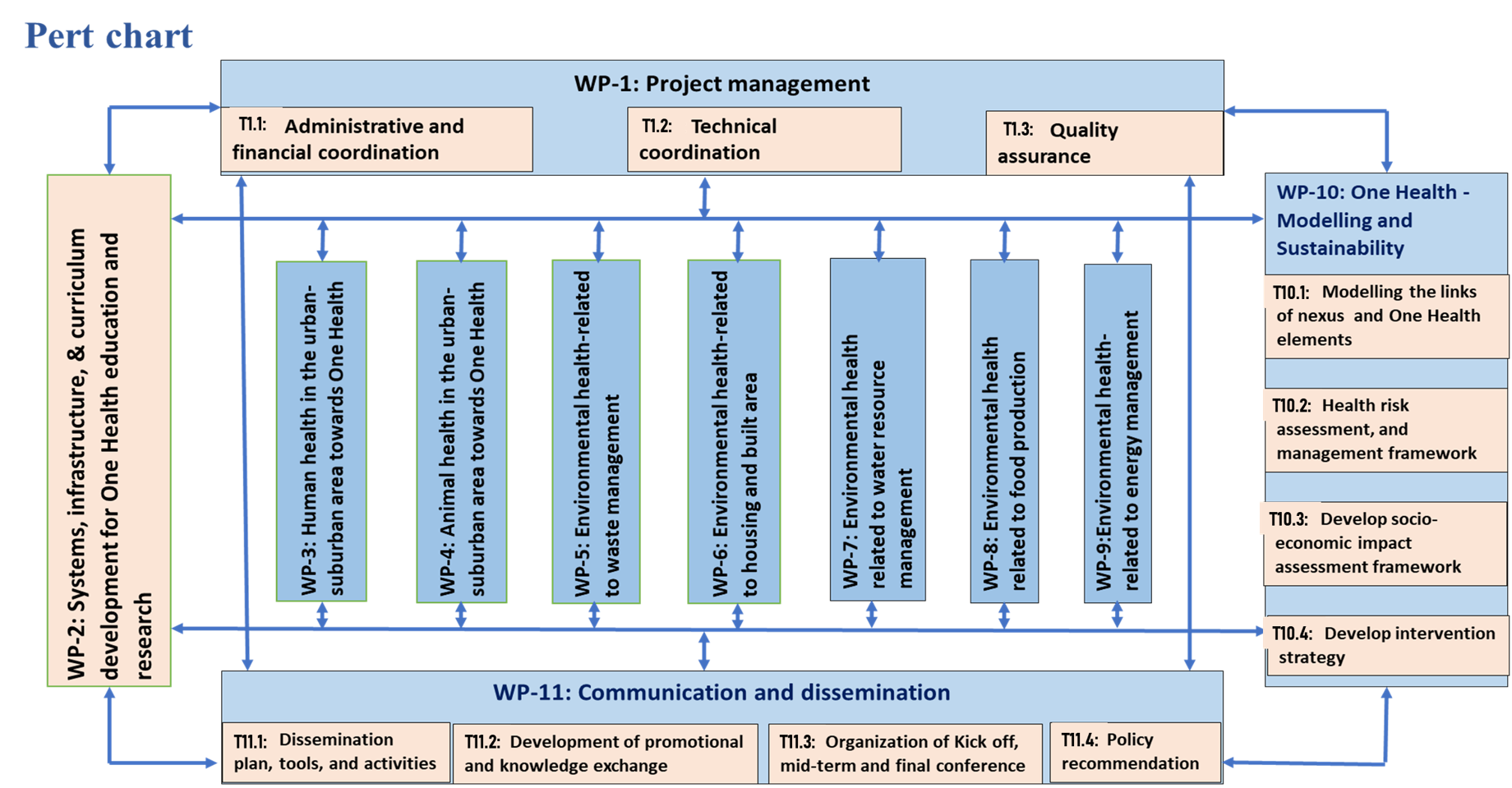The Norwegian Agency for Development Cooperation (NORAD) funds the One Health Education and Research project through the NORHED II Program (Norwegian Program for Capacity Development in Higher Education and Research for Development), with a grant of NOK 20 million. |
|
The "One Health" approach is a collaborative framework that seeks optimal health outcomes by recognizing the connections between human, animal, and environmental health. It emphasizes that human health is closely linked to the health of animals and ecosystems, promoting coordinated efforts across sectors through programs, policies, legislation, and research to improve public health.
The project brings together a multi-disciplinary consortium from The Arctic University of Norway (UiT), the Norwegian Veterinary Institute (NVI), the Norwegian Institute of Bioeconomy Research (NIBIO), Addis Ababa University (AAU), and the Malawi University of Science and Technology (MUST) to address the gaps in the training of One Health professionals at AAU (Ethiopia) and MUST (Malawi). The novel study program has been developed at both the PhD and MSc levels at AAU and MUST, which will serve as a model for adaptation and scaling in other countries within the region.

Project implementation strategy
Pillar 1 – One Health Curriculum Development
-
The curriculum will be designed around the key One Health framework and implemented in AAU and MUST
Pillar 2 – Capacity building for the staff and students of AAU and MUST
-
One Health Master's program (40 students - home-based and south-south mobility).
-
One Health PhD program (8 students - home-based and south-north mobility).
-
Postdoc (3 - home-based and south-north mobility).
-
Short-term training for laboratory technicians
-
Short-term project management training.
-
Short-term financial and administrative capacity training.
Pillar 3 – Implementation One Health research in Addis Ababa and Blantyre
-
The One Health research entitled "The Urban-Suburban Nexus of Food, water, energy, housing, and Waste Management Towards One Health Approach" will be implemented considering Addis Ababa and Blantyre as a project area. The health challenge in the project area will be the basis for the research project of Masters, PhD, and postdoc research fellows.
Pillar 4 – Engagement with relevant stakeholders, and dissemination of knowledge
-
Build a network with key stakeholders and effectively disseminate the project results - create networking and MoUs with strategic partnerships, development of knowledge hubs, publications and policy briefs, seminars, workshops, conferences, and publication in peer-reviewed journals and books.
Pillar 5 – Enhancing system, infrastructure and equipment for One Health education & research
-
Improve institutional systems, infrastructure and equipment that give better access to education and research facilities, increase the opportunities for effective teaching/learning and facilitate equitable access and inclusion.
-
The establishment of Learning Management Systems (LMS) (Smartboard), the provision of laptops, internet connectivity, books, and relevant laboratory equipment are the main outputs.
Project Organizational Structure

Target groups
-
Students, academic and research staff, management and administration staff, and technical staff of Addis Ababa University and Malawi University of Science and Technology.
-
Vulnerable populations such as female students, students and staff with disabilities, people living with albinism and people living with HIV and AIDS.
-
Relevant actors, policymakers and practitioners involved in the broad perspective of health and resource management (municipalities, public health institutions, urban agriculture sector, water authority, environmental authorities, energy generators, distributors and regulators).
-
The public (urban and suburban dwellers).
-
The scientific community (regional, national, and global).

[Loading...]


